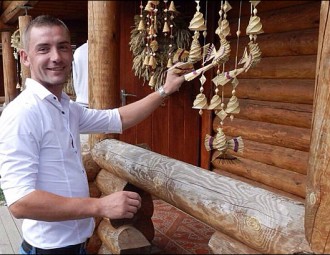Mikhail Pishcheuski maimed after LGBT-party died in hospital

The activist of LGBT-movement was in hospital from May 2014; after the beating he was diagnosed with skull fracture and cerebral haemorrhage.
Mikhail Pishcheuski, who was maimed after LGBT-party, passed away in a hospital in Minsk, Siarhei Androsenka, an activist of human rights project ‘GayBelarus’, said on Facebook.
“Misha, we miss you. We love you as much as before. We will remember you. Always…” Siarhei Androsenka wrote on his page in Facebook.
Let us recall that on 25 May 2014, Mikhail Pishcheuski was attacked by Dzmitry Lukashevich near Underworld cafe in Minsk. Pishcheuski’s sexual orientation became the reason for the attack: the blow was so strong that Mikhail fell down and his head struck against concrete cover. Having realised that the victim was badly hurt Lukashevich and his companions left the scene.
The medics found Pishcheuski in a critical state. He slipped into a coma. Approximately 20% of his brain had to be cut in the course of a number of surgeries.
When the offender stood trial, the judge considered his actions as ‘serious bodily assault by recklessness’ and sentenced Lukashevich to 2 years and 8 months in a medium-security penal colony.
The judge failed to determine that the crime is a premeditated serious bodily assault and did not take cognizance of the state prosecutor’s offer to sentence the defendant to 7 years of imprisonment. Reconsidering the case, he also refused to admit that the crime had been motivated by hatred of gays.
In August 2015, Dzmitry Lukashevich was granted amnesty and released.
-
03.01
-
07.10
-
22.09
-
17.08
-
12.08
-
30.09



























